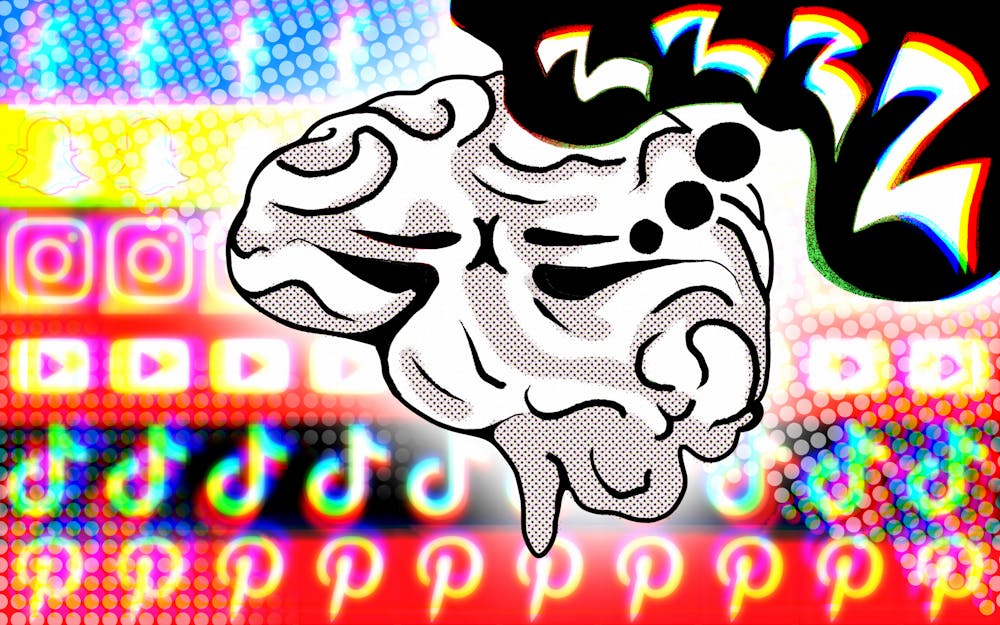I spend an average of seven hours on my phone every single day. Right after I wake up, I instantly scroll through different social media apps, continuing throughout the day, up until right before I fall asleep.
Undoubtedly, my smart phone is more of a tool rather than a distraction, as emails and text messages are imperative to survive the school day. But unfortunately, I cannot resist the temptation of opening TikTok and Instagram after I finish replying to an email or checking a Canvas announcement.
While I resort to social media for relaxation throughout my day, the intended relaxation is juxtaposed with doom-filled news updates, influencers pushing hyper-consumerism through product recommendations and unrealistic beauty standards set by models.
Even with the intense topics and subliminal harmful ideas pushed out on social media, I cannot seem to stop scrolling. I constantly seek more videos and more posts from my friends or even strangers to satisfy my boredom. One entertaining video after the other fuels my mind to continue the cycle of checking other social media apps to see new posts or check new notifications.
Is this chronic scrolling — without the discipline to stop — an addiction?
Mayo Clinic writes dependency on the internet can be a behavioral addiction. This addiction happens because dopamine is released in the reward center of the brain from watching funny or interesting videos on social media. Our brain is constantly seeking the perfect balance of dopamine, which drives us to return to social media for a dopamine fix.
However, heavy screen time usage has been linked to several issues including obesity, insomnia, loss of social skills, violence, eye strain, neck and back problems, anxiety, depression and difficulties with work or school.
I can trace my social media addiction to the stay-at-home order during the COVID-19 pandemic. While being at home for months, I increasingly used social media to stay connected with my friends, follow the news and entertain myself while I did not have school, sports or friends occupying my free time. As my screen time continuingly increased, so did the hour at which I fell asleep. Most nights, I experienced insomnia until nearly 5 a.m.
Additionally, my eyes strained most afternoons and nights after already spending hours on my phone for the day. The effects on my mentality were not so concrete, but I often found myself overwhelmed with the media I was consuming, which ranged from devastating news from around the world to unreachable beauty standards I constantly saw on Instagram.
Since the pandemic, I have struggled to cut down my screen time. I rely on checking my social medias for the quick dopamine fix that I am so used to. Though I am aware that the effects of high screen time and social media use are negative, I perpetuate my scrolling habits.
We all face the challenge of cell phone addiction, but being aware of its potential pitfalls can help to strike a healthier balance between screen time and offline time.
Bridget Faul (she/her) is a junior studying journalism and public relations.






